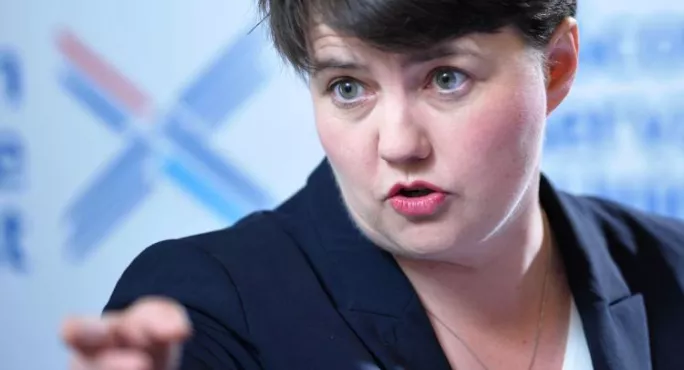Parents are being “left in the dark” about what happens inside their children’s schools, Scottish Conservative leader Ruth Davidson has claimed.
Ms Davidson used her slot at First Minister’s Questions this afternoon to pursue the issue, citing an upcoming report which suggests that only 7 per cent of schools are publishing information for parents that is required of them.
Regulation introduced by the Scottish Parliament six years ago was “crystal clear”, said Ms Davidson, about the need for schools to provide “comprehensive information” on issues such as subject choice and school performance.
However, she added that the 7 per cent figure had arisen in analysis by University of Dundee academic and former secondary headteacher Professor Jim Scott, for a paper on education and parental information due to be published next week.
Ms Davidson said Professor Scott had found that “the parent who wishes to make an informed choice of school has relatively little hope of doing so”, since “more than nine out of 10 schools fail to publish the information that this Parliament requires of them”.
She added that in Scotland’s secondary schools “too often parents are being left in the dark as to what is actually going on inside the school gate”. This meant that, for example, “they suddenly discover halfway through their child’s school journey that subjects they thought were on offer aren’t”.
Ms Davidson called for legislation “so that we can actually see some action” in the enforcement of parents’ rights.
In response, first minister Nicola Sturgeon said that it “strikes me as being rather strange that Ruth Davidson is pursuing this line of questioning” when the Conservatives would be bringing forward a motion next week to scrap Scottish National Standardised Assessments (SNSAs) at P1, “which are all about providing more information”.
She also said that schools already published “a range of information”, including details about subject choice, but added: “I want to see parents have more information about the performance of their children - that’s why we have standardised the assessments that were previously in place, including at Primary 1, in order that we are ensuring that teachers know whether young people are meeting the benchmarks that are set by the Curriculum for Excellence.”
Meanwhile, Scottish Liberal Democrat leader Willie Rennie asked once again if Ms Sturgeon would retain the SNSAs for P1s - when children are aged four and five - if Parliament votes in favour of scrapping them. He added that the EIS union had said at the weekend that the SNSAs were a “slippery path to league tables” which are “swallowing” teachers’ time and are a “drain” on resources.
Ms Sturgeon said: “We set benchmarks that we expect children to meet in Primary 1. I think it’s absurd to suggest we shouldn’t then try to assess whether or not children are actually meeting these benchmarks, because it then allows early intervention if necessary if children are not performing as expected.
“But also it allows a teacher to know whether a child is performing better than expected, and stretch that child rather than allow them to get bored in the classroom.”
Ms Sturgeon added: “I’m not saying that the EIS is wrong - I’m saying I have a difference of opinion with the EIS.” But she said she had “spoken to many teachers” who were supportive of the SNSAs.




